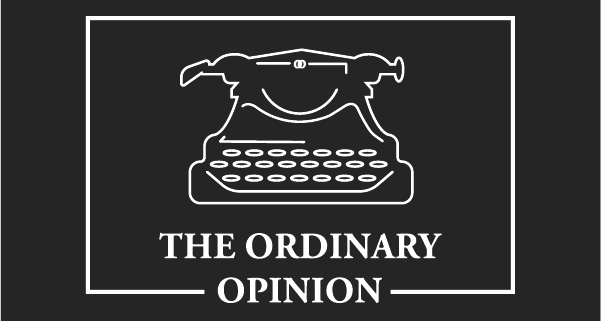It is our nature, generally, to be really bad at measuring progress over time.
We wince a bit when uncles and aunts tell us how much we’ve grown, until we go back to our bedroom doorframe every birthday morning, and notch another pencil mark a few inches above last year’s mark. Only then do we agree that okay, yes, maybe we’ve grown a bit. When music teachers tell us we’ve “come so far!” we shake our heads internally…no one likes to be patronized.
Without a defined, external (re: unbiased) marker to judge us on our own behalf, we’re pretty crap at understanding how we’ve done against life over a given period of time. When the occasion calls for it, what we tend to do instead is assess our current state against some grand target, and determine whether or not “right here” is where we want to be. If it isn’t, we determine ourselves failures, and the time that has passed we call lost.
I do this a lot. I often refer to my twenties as a lost decade. Graduating college, I filled my journals with lists of things I wanted to be and do and achieve in the coming years, mostly before 30. They revolved around actualizing talent and doing things that would build my sense of self: piano, guitar, learning Spanish, reading more, writing more. I wanted to pray more and decide finally whether I was in or out of organized religion.
Then every year, on my birthday or at New Years, I would run through the lists and judge: was I a millionaire yet (no); what about grade 8 piano (yes and no); guitar (no); had I read “more” (no). These sessions typically ended with me on the couch, disappointed in myself and so sure I was losing in life.
I’m not alone in this: my Facebook timeline this week was flooded with people publishing their self-reported performance reviews of 2017, either lamenting its waste or crowning it their peak, all based on whether or not they are ending the year in the picture they had painted on January 1st. It’s exhausting reading some of these.
I worry for those, like me, who year after year decide the year wasn’t what it could’ve been. They didn’t run that marathon or start that business or start that relationship. They couldn’t stick to vegan and they certainly didn’t read a book a week. They’re undecided as to whether to be excited for the clean slate that is 2018, or to avoid setting any resolutions; many of the promises broken in 2017 were the same broken in 2016.
I want to hug those people, and tell them it’s okay. 2017 was awesome, if only viewed differently. The issue isn’t with the goals; it’s with what we define as success, and how we assess progress toward our life goals.
We tend to be highly ambitious at the outset, setting goals that are either too unrealistic (example), too vague (e.g., learn piano), too punishing (e.g., six pack by end of this year) or do not depend on us alone (e.g., get married in 2017).
And then on December 31st, we assess ourselves against the picture we painted of set goal – and against where others say they are a la Facebook – and call the year a success or a failure.
If we determine the year was a failure, we can be extremely unkind to ourselves, writing off entire portions of our lives as a waste, burying ourselves deeper in a pit of self-criticism and inadequacy, a coffin of our own carving.
So if we aren’t lean and chiseled, that gym resolution was a failure. If we snuck burgers repeatedly after March, vegetarianism isn’t for us. Not starting that business reduces us to a Netflixing pile of self doubt. It’s all very harsh.
We do not measure the millimeters between the inches, and the steps within the mile. We’re excellent at judging our projects as failures after one year’s attempt, forgetting that our role-models took years to complete theirs. We love to count days missed, completely discounting tasks completed.
This year, I propose a different approach: I’m not setting any resolutions. I’ve got no goals, no targets, no new projects. The ones I set in 2017 are good enough, and are still – in many instances – the same things I want for myself this year. I want to write more, read more, and spend more time working on my spirit.
But I don’t have a target number of articles to write, or books to read. I’d like to – after 10 years of talking about it, start playing the bass guitar. I don’t have a goal for practice hours. I just know I’d like to play.
And if I set a goal of 1 article per week, and only write 1 a month, I don’t want missing my goal to take away the joy of knowing I wrote 12 things I liked enough to publish.
So this year, I’m only recording the things I successfully do. I’m going to keep count of how many times I go to the gym. I’m going to try to keep track of every opinion piece I read. I’m going to count every piece of writing I create. Not necessarily every article. But every journal entry. Every complete paragraph. Every idea I investigate. I want to remember the things I’m doing, not be burdened by the things I’m not.
Now look, I don’t want to promote mediocrity; I have goals for myself, as we all should. And I don’t want to abandon progress measurement in favor of “just go with the flow.” But I do think it might be helpful to reassess how we take the journey, and what we consider the finish line; recently, it feels as though I’ve looked only to the finish line, and stopped enjoying the journey. And where I’ve completely missed the finish line, I beat myself up for it.
This article alone has taken me 3 weeks to write. I started it the week of Christmas, and if you read carefully, you can see where the ideas are less tied than they could be if I wasn’t such a bad procrastinator. But I’m working to not assault myself for procrastinating, and just enjoy the fact that it’s done now, today, the 14th.
No more berating myself, trying to earn good vibes for myself by hitting targets.
I get the sense now that no amount of achievement can ever convince me that I am more worthy of appreciation or love, if I have not already done so. I cannot earn favor with myself, and cannot hit a goal so triumphant that I would stop setting goals altogether and expect nothing further of myself till I expire.
Even if such a goal were to exist, I doubt it would be the kind of goal that fits neatly inside of 365 calendar days, allowing a report card to be issued on the 31st of every year. What should matter is less the destination and more the journey; after all, what does one do with a destination except soon abandon it for the next?
It is the journey that is life.
If December 30th 2017 was the year that I finally learned that, then all 2017 was worth it. I call the year a success.



